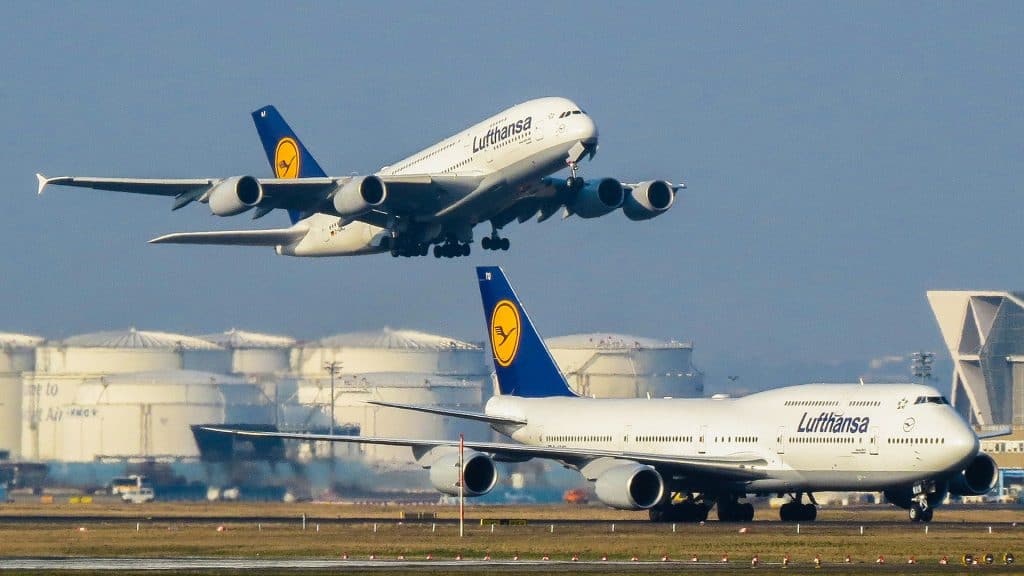The weekly report of our trade correspondent, L.C.

On October 18th, the US imposed tariffs of 10% and 25% on imports from the European Union. This ratcheting up of global trade war had been expected, given that no serious talks for a negotiated solution to the US-EU aircraft subsidies dispute occurred. The dispute has been dragging on at the World Trade Organization for 15 years.
The US tariffs are WTO-approved and thus not of the same character as the previous Section 301 and Section 232 tariffs imposed unilaterally by President Trump. The earlier tariffs, which were imposed without following WTO procedures, are being challenged at the WTO.
In the latest tariff regime, the Trump Administration has chosen to hit a variety of EU exports, including food and consumer goods, with a 25% tariff, and aircraft (airframes but not parts) with a 10% tariff.
The latest US tariff action intensifies already taut trans-Atlantic relations. The White House may believe that the tariffs give it more leverage in the talks. EU officials in Brussels, however, insist that the tariffs will make it harder to reach a trade deal. EU retaliatory tariffs could come in early spring – just when the President is in the midst of his reelection campaign. Brussels knows how to make tariffs on US goods politically painful. In past disputes it has targeted the most politically sensitive products and did so recently in its retaliatory tariffs in response to US steel tariffs. This in turn could make it more likely that Section 232 automotive tariffs will be imposed by the Trump administration on the EU. Germany would be especially hard hit.
The EU continues to claim that
- It has brought its practices into conformity with WTO recommendations against its subsidies for Airbus,
- It wants to find a negotiated solution, and
- In the absence of a settlement it expects to impose billions of dollars of tariffs on US exports once the separate WTO arbitration panel authorizes it to retaliate in the Boeing case.
President Trump is correct that EU countries – led by Germany – are more dependent on exports than the US is. That’s true of almost all developed countries. None has the huge domestic market that the US enjoys. The recent downturn in world trade, compounded by the Brexit mess and uncertainty over possible US automotive tariffs, has worsened Europe’s economic condition. The new US tariffs will impose further harm, intensifying uncertainty and pullback from investment. However, few agree with the US president that the US – where business confidence and investment are also weakening –“can’t lose” from a new front in the tariff war. The Fed’s latest assessment of economic conditions around the country (the “Beige Book”) released on October 16th reiterates that the US economy is suffering from “persistent trade tensions and slower global growth.”
China put on notice for Hong Kong actions
Regarding Hong Kong, seeing that the White House doesn’t want to respond aggressively, Congress is stepping in. A number of bills and resolutions supporting protesters and punishing Beijing have been introduced since demonstrations broke out earlier in the summer. On October 15th the House passed – unanimously – the Hong Kong Human Rights & Democracy (HKHR&D) Act, which now awaits Senate action. It also passed the Protect Hong Kong Act, also with strong bipartisan support, as well as a resolution supporting the protesters and condemning Chinese interference. The Protect Act bans the export of crowd-control equipment to the Hong Kong police.
The HKHR&D Act, the severest of the three, calls for invoking the International Emergency Economic Powers Act to put sanctions on Chinese individuals and entities “responsible for undermining fundamental freedoms and autonomy in Hong Kong.” It requires an annual report from the Commerce Department on whether China is using Hong Kong’s status as a separate customs territory to transship to China US products that fall under US export controls and are thus banned from sale to China. Thus, the legislation poses a threat to Hong Kong’s special status under US law.
Beijing has accused lawmakers of a “political plot” for approving the bill and threatened to retaliate with “strong measures.” If the bills pass the Senate and aren’t vetoed, they set up a new and serious confrontation with China. A veto would likely be overridden anyway. It would seem that the US is beginning to move toward a goal of regime change in China rather than just improved trade relations.

Leave a Reply